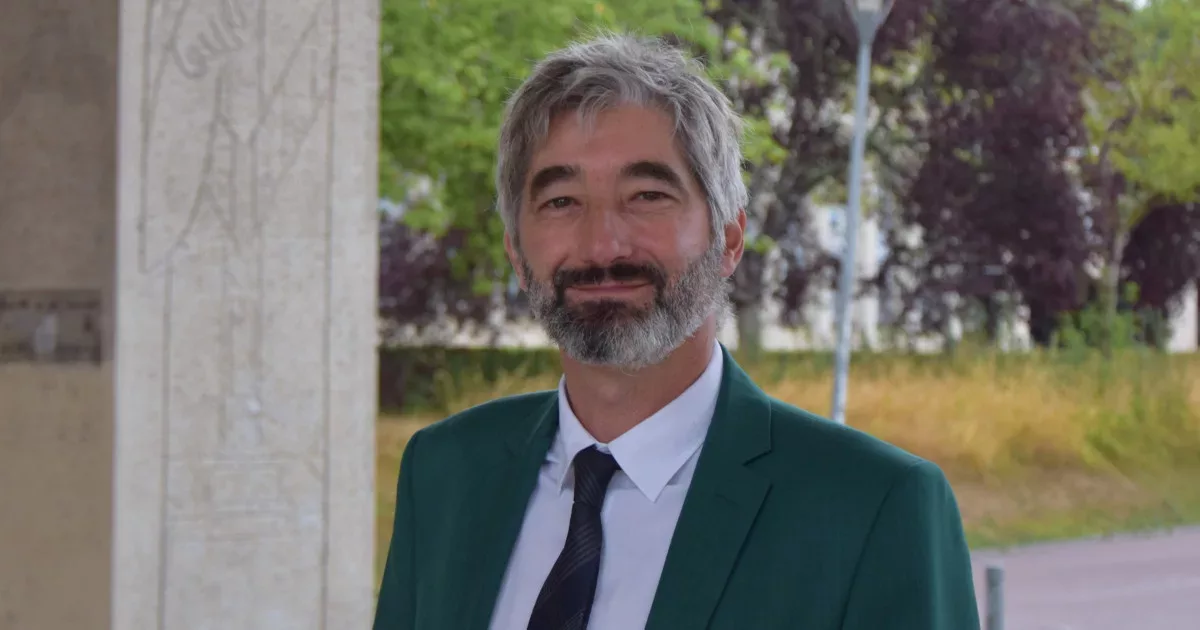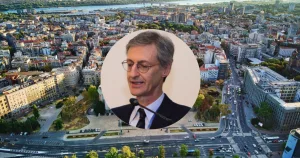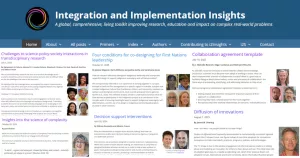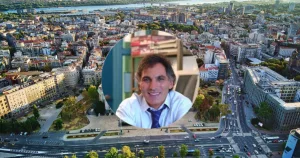Thierry Machefert: ”The University Caen Normandy has a unique approach to science and society relationships”
In the past four years, participatory research pervaded several kinds of initiatives undertaken by the university in order to develop strong links between research and citizens

The University of Caen Normandy was awarded the « Science avec et pour la société » (SAPS) label by the French Ministry of Higher Education and Scientific Research in 2021. What was the content of your project?
Thierry Machefert: Before the team led by President Lamri Adoui, who was elected at the end of 2020, took office, the relationships science-society were not a major topic at the University of Caen Normandy. We were determined to develop this area. We took the opportunity of the call for expressions of interest, launched in March 2021 by the Ministry of Higher Education and Research, to propose a project with four axes. It was selected, along with those of seven other universities, and we received a €290,000 grant for 3 years (a total of €970,000). Our application was singular, as we built it with a non-academic partner, Le Dôme, a center for scientific, technical and industrial culture based in Caen, created by an association. Moreover, Le Dôme is singular itself, since it is a science center in which there is no permanent exhibition: it mainly offers public participation actions.
You mentioned four axes. What are they?
T. M.: The first one is participatory research, with several initiatives. In particular, we organize the Turfu Festival every year in conjunction with Le Dôme. This festival on participatory research pre-existed our partnership, but we have increased the presence of university players. We have also expanded the scope of the Têtes chercheuses contest, launched in 2010 by Relais d’sciences, the association that created Le Dôme. In addition to a prize awarded by the Fondation Musée Schlumberger, for the production of a scientific mediation device, we have created a second prize: the UNICAEN “Science & Société” prize funds a participatory research project.
What are your other priorities?
T. M.: The second axis concerns fake news and misinformation. In particular, we have set up a cinema-science cycle, which offers all kinds of films, including fiction for the general public. The third axis is devoted to training in mediation and participatory approaches. Its central focus is the creation of a master’s degree in “Information, Mediation, Science and Technology”, with a “Participatory approach and research” course. The start of the third promotion took place in September 2024.
And the last axis?
T. M.: It is the promotion and evaluation of participatory research and scientific mediation activities. How can we encourage and enhance the value of what academics do when they take on this kind of activities? The aim is to get them more involved, but also to give them better recognition by the university on the one hand, and by society on the other. For a long time now, many academics have been involved in mediation in schools, colleges and high schools, but it is more or less invisible: we want to show society that it is interesting to talk to scientists, to find out about their job, their methodology and how research works. We have created two partnerships: one with the association L’Arbre des Connaissances, to better deploy its Apprentis Chercheurs (scientists in training) scheme; and the other with Cercle FSER and its DECLICS initiative. These two schemes, aimed at primary school pupils, enabled us to structure, on a university scale, interventions that had previously been the result of personal initiatives.
In fact, participatory research is present in all four axes?
T. M.: Indeed! For example, a network of masters in scientific mediation was set up, as a consequence of the SAPS label process, and now includes a dozen establishments. We can see that in Caen, our specificity is based on a very strong emphasis on scientific mediation using participatory methods.
Do you also train scientists in participatory research?
T. M.: Indirectly. We have set up a cultural department, which is responsible for cultural and scientific issues, as well as science-society relationships. In this department, staff are dedicated to support academics who wish to set up a workshop at the Turfu Festival, or submit an application to the Têtes chercheuses contest, or propose a cinema-science session. It is a way of passing on skills to these researchers, without it being a training approach as such.
In addition to the UNICAEN “Science & Société” prize, how do you encourage the emergence of participatory science projects?
T. M.: The Turfu Festival is made up of several three-hour workshops, each of which must be a step in a participatory research project: the start of the project, an intermediary step, the assessment or the presentation of a completed project. It is another opportunity to support participatory research projects. Our idea is to create a dynamic that encourages academics to contact us when they want to develop such projects. For example, the cultural department dedicated to science and society has supported applications to the French national research agency (ANR) calls for projects on participatory research.
At the end of 2024, Lamri Adoui was re-elected president of the university for a second term, with the same team. Did you include participatory research in your program?
T. M.: The electoral program included the support and the promotion for this kind of research and for the academics who want to get involved. For example, we now offer the creation of a system that would make it easier to bring researchers into contact with society, within the framework of participatory research. We do not explicitly mention a “science shop”, as we need to make sure we have enough resources to implement it, but that is the idea.
The funding associated with the SAPS label ended in 2024. How do you continue to fund these actions?
T. M.: The situation is the same for all universities who received the label, and the associated funding. On one hand discussions are underway with the French Ministry of Higher Education and Research: the aim of the SAPS label was to create dynamics and structures, and if everything should stop, it would be a waste of public money. On the other, the University of Caen Normandy and Le Dôme are part of the steering committee for the regional higher education plan, which runs until 2028. This has led to scientific, technical and industrial culture – to use the Region’s terminology – being one of the four priorities of this plan. This priority has given rise to funding: the Normandy Region is supporting us and helping us to prolong this dynamic, particularly in terms of human resources, by extending the positions created thanks to the SAPS label. Moreover the Science-Society Forum we set up to bring together players in the field of scientific culture in Normandy worked so well that the Normandy Region took an interest in it, and even fully organized it in 2024. It has now transformed it into a permanent network, the Réseau Cogito.
Why did you organized a scientific symposium devoted to participatory science in 2022?
T. M.: We wanted to introduce a more reflexive and scientific dimension, by tackling the epistemological challenges of participatory research. Many other symposiums have been devoted to participatory research, but we wanted to take a step back and look at this approach as a whole, from a neutral point of view.
Is the epistemology of participatory research debated in the scientific world?
T. M.: Certainly! No scientist would today question that citizens can contribute usefully to research, for example in gathering data. But concerning citizens who contribute to building knowledge, with a real epistemological value, there are debates. We should not state that it is legitimate to do participatory research just because it would be fashionable. There may be limits to the scope and methodologies of participatory research. The symposium was not so easy to organize: some people have a real faith in participatory research and defend an extremely strong horizontality between the modalities of knowledge production. Others strongly defend that science requires high-level skills, an expertise that cannot be shared. To have these two points of view represented in the same room and discussed seriously is already no small feat!
Interview by Luc Allemand
SUBSCRIBE TO OUR NEWSLETTER
To stay up to date with our projects and the development of the EHC
Read more articles

Gian Francesco Giudice: “Ethical responsibility is essential in fundamental research”
From hypothetical black holes to environmental impact studies, CERN navigates risk, transparency, and moral responsibility at the frontiers of human

Dealing with the complexity of society and environment
A global toolkit for tackling complex problems with more than 600 different methods Ever wish you had a free toolkit

The Moon & the Global South: Voices, Risks & Promise
Researchers warn that without inclusive governance, the Moon could become “a new arena for old patterns of exclusion” When rockets

Borko Furht: “AI shouldn’t be given much autonomy without maintaining accountability”
Beyond Superintelligence: The Real Challenges of Keeping Humans ‘In the Loop’ Borko Furht is a professor in the department of